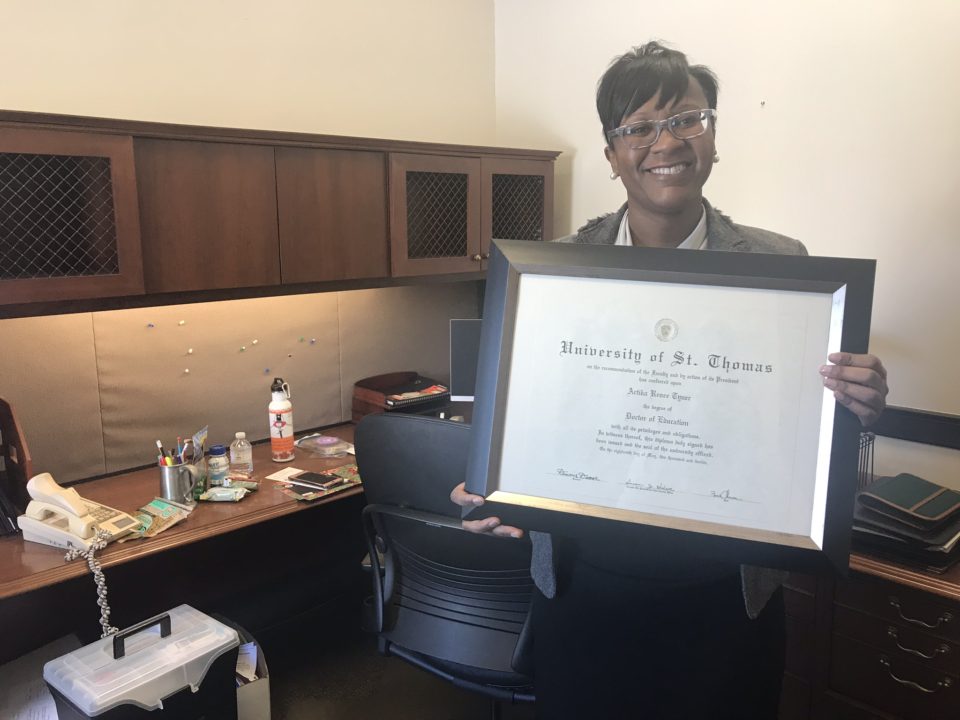
Dr. Artika Tyner proudly holds her doctorate degree in Education from the University of St. Thomas. Behind her, a bare office as she is prepared to move her office to St. Thomas’ Minneapolis campus. (Taylor Shupe/TommieMedia)
Artika Tyner, the current associate vice president of diversity and inclusion, will lead a new center for students to expand the ways they look at race, leadership and social justice opening in the fall of 2019, located on St. Thomas’ Minneapolis campus and School of Law.
Tyner is an alumna of St. Thomas and was a faculty member and administrator before her time as associate vice president.
“The catalyst for the center, in my mind, is how do we change the sense of ‘we’re going to class’ to ‘well, how do we engage with the issues in the world around us and how do we bring forth meaningful change?’” Tyner said.
Not only does this new center provide Tyner with ways to connect with more students, this new role will bring her back to the classroom as well.
“I miss the podium,” Tyner said.
Beyond the study abroad J-term programs she has lead the past couple years, the last classes Tyner taught were for the St. Thomas School of Public Policy four years ago. These classes included research administrative law, public policy advocacy and one of her favorites: critical reflection.
“The learning in the classroom happens outside of the classroom,” Tyner said.
A highlight of her administrative law class was surprising the students who expected to write a paper for their capstone by instead taking them to the Somali Federation Center to teach people about their rights.
In an email President Sullivan sent to faculty, staff and students in January 2019, Sullivan touched on the interactive experiences students will gain through this center, “Students will interface with lawyers in the community who are fighting for justice and equity and gain in-depth insights related to civil rights, human rights law, and advocacy.”
Tyner’s main goal of the center is to further give students the tools to be able to navigate social justice issues, tools she felt St. Thomas gave her.
Robert Vischer, St. Thomas’ dean and Mengler chair in law describes Tyner as the perfect candidate to lead the center.
“The center is going to be bringing together a focus on scholarly research, student learning, public advocacy and community partnership,” Vischer said. “That is what Dr. Tyner has been doing over the course of her career.”
Tyner plans to incorporate a number of visiting fellows to provide support and diverse views on the key themes and topics that the center will cover for the students involved.
In addition, Tyner plans to reach out to graduate research assistants she has had over the years to create somewhat of a “formal advisory board” for the center.
Tyner also plans to someday develop an “open call” for scholars and individuals looking to be involved with the center.
For now, the center will not be a new physical building. Students will meet with Tyner in her office or in one of her classrooms.
“You see a problem, you create a solution,” Tyner said regarding her taking actions with the development of the center. “Students will be able to engage with their learning tools and make a broader impact. For me, it is just an opportunity to take their work to scale.”
Taylor Shupe can be reached at shup9397@stthomas.edu.

